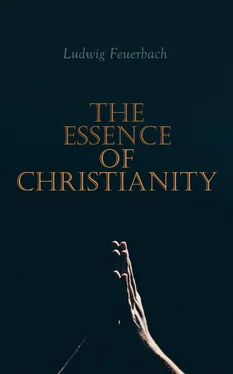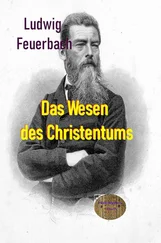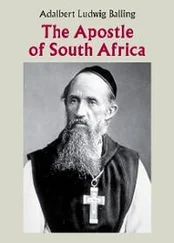The heart comprehends only what springs from the heart. From the character of the subjective disposition and impressions the conclusion is infallible as to the character of the object. The pure, free understanding denies the Son,—not so the understanding determined by feeling, overshadowed by the heart; on the contrary, it finds in the Son the depths of the Godhead, because in him it finds feeling, which in and by itself is something dark, obscure, and therefore appears to man a mystery. The Son lays hold on the heart, because the true Father of the Divine Son is the human heart, 3and the Son himself nothing else than the divine heart, i.e. , the human heart become objective to itself as a Divine Being.
A God who has not in himself the quality of finiteness, the principle of concrete existence, the essence of the feeling of dependence, is no God for a finite, concrete being. The religious man cannot love a God who has not the essence of love in himself, neither can man, or, in general, any finite being, be an object to a God who has not in himself the ground, the principle of finiteness. To such a God there is wanting the sense, the understanding, the sympathy for finiteness. How can God be the Father of men, how can he love other beings subordinate to himself, if he has not in himself a subordinate being, a Son, if he does not know what love is, so to speak, from his own experience, in relation to himself? The single man takes far less interest in the family sorrows of another than he who himself has family ties. Thus God the Father loves men only in the Son and for the sake of the Son. The love to man is derived from the love to the Son.
The Father and Son in the Trinity are therefore father and son not in a figurative sense, but in a strictly literal sense. The Father is a real father in relation to the Son, the Son is a real son in relation to the Father, or to God as the Father. The essential personal distinction between them consists only in this, that the one begets, the other is begotten. If this natural empirical condition is taken away, their personal existence and reality are annihilated. The Christians—we mean of course the Christians of former days, who would with difficulty recognise the worldly, frivolous, pagan Christians of the modern world as their brethren in Christ—substituted for the natural love and unity immanent in man a purely religious love and unity; they rejected the real life of the family, the intimate bond of love which is naturally moral, as an undivine, unheavenly, i.e. , in truth, a worthless thing. But in compensation they had a Father and Son in God, who embraced each other with heartfelt love, with that intense love which natural relationship alone inspires. On this account the mystery of the Trinity was to the ancient Christians an object of unbounded wonder, enthusiasm, and rapture, because here the satisfaction of those profoundest human wants which in reality, in life, they denied, became to them an object of contemplation in God. 4
It was therefore quite in order that, to complete the divine family, the bond of love between Father and Son, a third, and that a feminine person, was received into heaven; for the personality of the Holy Spirit is a too vague and precarious, a too obviously poetic personification of the mutual love of the Father and Son, to serve as the third complementary being. It is true that the Virgin Mary was not so placed between the Father and Son as to imply that the Father had begotten the Son through her, because the sexual relation was regarded by the Christians as something unholy and sinful; but it is enough that the maternal principle was associated with the Father and Son.
It is, in fact, difficult to perceive why the Mother should be something unholy, i.e. , unworthy of God, when once God is Father and Son. Though it is held that the Father is not a father in the natural sense—that, on the contrary, the divine generation is quite different from the natural and human—still he remains a Father, and a real, not a nominal or symbolical Father in relation to the Son. And the idea of the Mother of God, which now appears so strange to us, is therefore not really more strange or paradoxical, than the idea of the Son of God, is not more in contradiction with the general, abstract definition of God than the Sonship. On the contrary, the Virgin Mary fits in perfectly with the relations of the Trinity, since she conceives without man the Son whom the Father begets without woman; 5so that thus the Holy Virgin is a necessary, inherently requisite antithesis to the Father in the bosom of the Trinity. Moreover we have, if not in concreto and explicitly, yet in abstracto and implicitly, the feminine principle already in the Son. The Son is the mild, gentle, forgiving, conciliating being—the womanly sentiment of God. God, as the Father, is the generator, the active, the principle of masculine spontaneity; but the Son is begotten without himself begetting, Deus genitus , the passive, suffering, receptive being; he receives his existence from the Father. The Son, as a son, of course not as God, is dependent on the Father, subject to his authority. The Son is thus the feminine feeling of dependence in the Godhead; the Son implicitly urges upon us the need of a real feminine being. 6
The son—I mean the natural, human son—considered as such, is an intermediate being between the masculine nature of the father and the feminine nature of the mother; he is, as it were, still half a man, half a woman, inasmuch as he has not the full, rigorous consciousness of independence which characterises the man, and feels himself drawn rather to the mother than to the father. The love of the son to the mother is the first love of the masculine being for the feminine. The love of man to woman, the love of the youth for the maiden, receives its religious—its sole truly religious consecration in the love of the son to the mother; the son’s love for his mother is the first yearning of man towards woman—his first humbling of himself before her.
Necessarily, therefore, the idea of the Mother of God is associated with the idea of the Son of God,—the same heart that needed the one needed the other also. Where the Son is, the Mother cannot be absent; the Son is the only-begotten of the Father, but the Mother is the concomitant of the Son. The Son is a substitute for the Mother to the Father, but not so the Father to the Son. To the Son the Mother is indispensable; the heart of the Son is the heart of the Mother. Why did God become man only through woman? Could not the Almighty have appeared as a man amongst men in another manner—immediately? Why did the Son betake himself to the bosom of the Mother? 7For what other reason than because the Son is the yearning after the Mother, because his womanly, tender heart found a corresponding expression only in a feminine body? It is true that the Son, as a natural man, dwells only temporarily in the shrine of this body, but the impressions which he here receives are inextinguishable; the Mother is never out of the mind and heart of the Son. If then the worship of the Son of God is no idolatry, the worship of the Mother of God is no idolatry. If herein we perceive the love of God to us, that he gave us his only-begotten Son, i.e. , that which was dearest to him, for our salvation,—we can perceive this love still better when we find in God the beating of a mother’s heart. The highest and deepest love is the mother’s love. The father consoles himself for the loss of his son; he has a stoical principle within him. The mother, on the contrary, is inconsolable; she is the sorrowing element, that which cannot be indemnified—the true in love.
Where faith in the Mother of God sinks, there also sinks faith in the Son of God, and in God as the Father. The Father is a truth only where the Mother is a truth. Love is in and by itself essentially feminine in its nature. The belief in the love of God is the belief in the feminine principle as divine. 7Love apart from living nature is an anomaly, a phantom. Behold in love the holy necessity and depth of Nature!
Читать дальше












